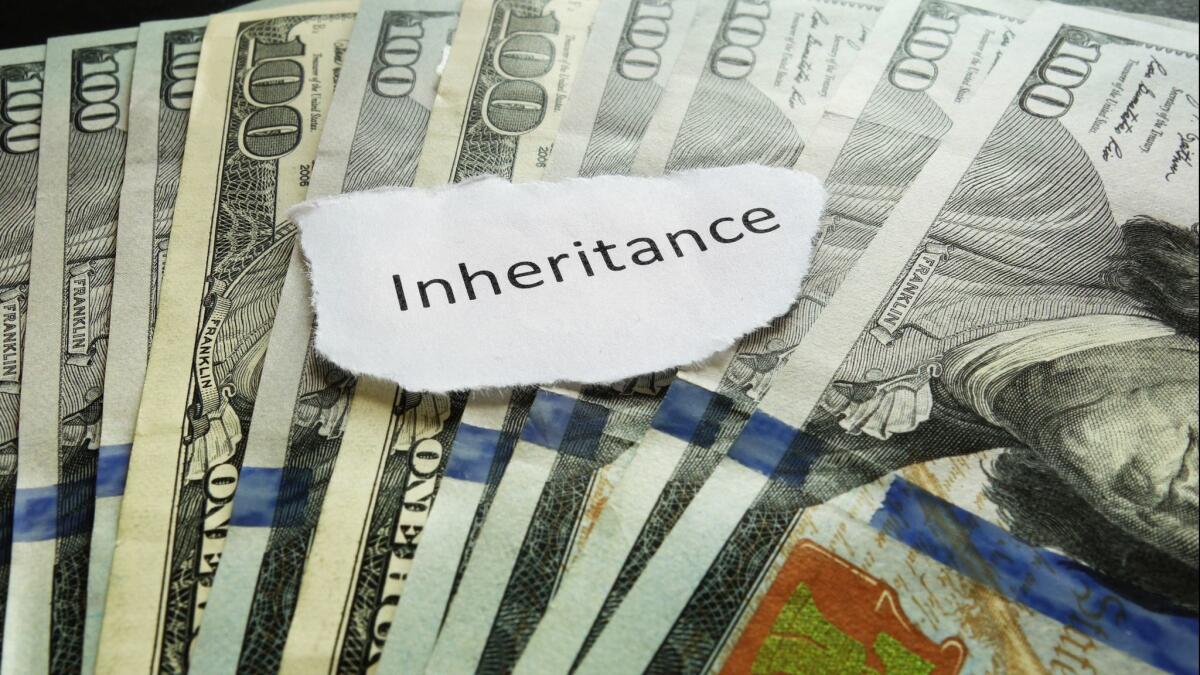How to ensure that assets end up with an heir â not that personâs spouse

Dear Liz: What would be the ownership status of assets covered in our will and our retirement accounts when our heirs and beneficiaries receive them? In the case of married heirs, do the asset ownership laws of their state of residence dictate whether inheritance proceeds get held individually or jointly? In addition to having a candid conversation with our kids, we are debating the need for and risk associated with a revocable living trust to provide some assurance that our wishes be honored for our direct descendants to receive and manage any proceeds.
Answer: Inherited assets can be kept as separate property, even in community property states where assets acquired during marriage are typically considered jointly owned. Keeping property separate requires some vigilance, however. If an inheritance is deposited in a joint account, or joint funds are used to improve a separately owned house, those assets could become marital property.
Even if your heirs are scrupulous about keeping property separate, their spouses may ultimately inherit should your heirs die first. If those spouses remarry, the assets could wind up with another family, rather than with your grandkids.
If you want your assets to ultimately get to your grandchildren, there are a few ways to do that, such as bequeathing assets directly to them or through generation-skipping trusts. You can use either a will or a revocable living trust.
Youâd be smart to talk to an experienced estate planning attorney about what you want and the best way to achieve those ends.
Big severance creates a tax problem
Dear Liz: My husband is being laid off with a severance package equal to seven monthsâ pay. Whatâs better for tax avoidance in California, a 529 college savings plan contribution or investing in an IRA?
Answer: A 529 college savings plan contribution wonât save you taxes in California. Thereâs no federal deduction for such contributions, and unlike most other states, California doesnât offer a state tax break, either.
Your husband can contribute up to $5,500 to IRAs for each of you, plus an additional $1,000 per person if youâre 50 or over. Whether the money will reduce your 2018 tax bill depends on your income and whether youâre covered by workplace retirement programs.
If your husband had a 401(k) or similar plan, he would be able to deduct his contribution only if your modified adjusted gross income as a married couple filing jointly is under $101,000. A partial deduction is available until the tax break phases out at $121,000.
If you arenât an active participant in a workplace plan, however, higher income limits apply. Your husband can make and deduct a spousal IRA contribution for you as long as your joint modified adjusted gross income is under $189,000. A partial deduction is available until the tax break phases out at $199,000.
Even if youâre able to reduce your taxable income with such contributions, youâll still probably owe a sizable tax bill on this severance. Please consult a tax pro about how much of the money to put aside and whether youâll need to make any payments before next yearâs tax deadline.
Getting spousal benefits after divorce
Dear Liz: When I retired at 63, my husband had been on Social Security for several years. We had been divorced about six months at that time. Should I have been bumped up to his benefits? We had been married for 42 years.
Answer: You wouldnât get an amount equal to his benefit if heâs still alive â thatâs called a survivorâs benefit, and itâs only available after his death. But you could get a spousal benefit of up to half of his check if that amount is larger than your own retirement benefit.
Both spousal and survivor benefits are available to divorced spouses if the marriage lasted at least 10 years. Neither benefit reduces what your ex or any subsequent spouses get.
You should call the Social Security Administration at (800) 772-1213 to see if you qualify for a larger check.
Liz Weston, certified financial planner, is a personal finance columnist for NerdWallet. Questions may be sent to her at 3940 Laurel Canyon, No. 238, Studio City, CA 91604, or by using the âContactâ form at asklizweston.com. Distributed by No More Red Inc.
Liz Weston, certified financial planner, is a personal finance columnist for NerdWallet. Questions may be sent to her at 3940 Laurel Canyon, No. 238, Studio City, CA 91604, or by using the âContactâ form at asklizweston.com. Distributed by No More Red Inc.
More to Read
Inside the business of entertainment
The Wide Shot brings you news, analysis and insights on everything from streaming wars to production â and what it all means for the future.
You may occasionally receive promotional content from the Los Angeles Times.










